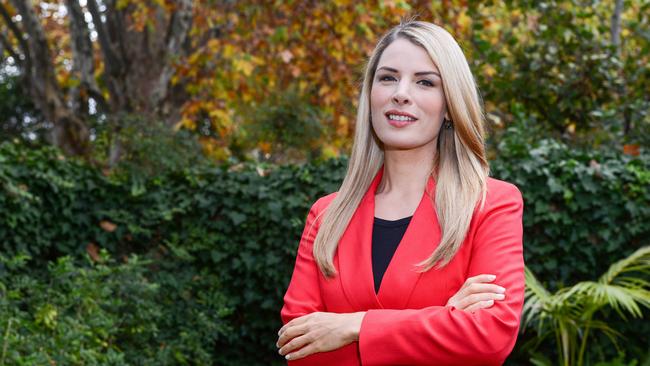Christmas gifts cost too much for many, so try something new
Spending money at Christmas should be a simple equation but many people suffer stress. Here are some ways to control it.
’Tis the season to be giving, but many people struggling with surging living costs are being urged to consider giving fewer presents this Christmas.
Buying lavish gifts puts extra strain on already-stretched household budgets, and money experts say there are alternatives.
Financial wellbeing advocate Lel Smits from the Australians Shareholders’ Association says rising living costs “have undoubtedly increased the pressure associated with gift giving this year”.
“When so many are struggling to pay for essential goods and services, financial strain can heighten the stress associated with spending money on presents,” she says.
“The festive period can be filled with gift-giving stresses with common pressures including expectations to find the perfect gift, reciprocate gifts, impress or meet generosity standards and concerns loved ones will be disappointed.”

Smits says people can overcome gift-giving pressure by:
• Setting a budget and sticking to it.
• Communicating their boundaries by asking for and setting expectations with family, friends and colleagues – a Secret Santa gift exchange involving one rather than many presents can be a good idea.
• Choosing meaning over money.
Time is a gift, too
“Thoughtful gifts are always valuable and do not need to be extravagant,” she says.
“Homemade gifts show love and generally don’t come with a big price tag. Handmade items such as crafts or food will always be special for their personal touch.”
Smits says time can also be a valuable gift to a loved one.
“Consider how you can gift yours, either through coupons for services, like babysitting or home cooked meals, or offering skills such as teaching a hobby,” she says.
“For the gift that keeps giving throughout the year, consider financial literacy tools such as a personal finance book or planner, financial online course or subscription. “
Sort My Money founder David Rankin says many peoples’ previous Christmas spending had set a precedent for themselves, family and friends, but “with cost-of-living pressures those rules don’t apply any more”.
Rankin says most people have become more mindful about spending and do not expect a Christmas splurge in line with previous years.
“There is less to go around this year – it’s the worst Christmas it has been,” he says.
The key, Rankin says, is to plan all spending in detail.
“Work out how much you need in total and use a separate spending account,” he says.
“Once the account is gone, it’s gone.”
Stay on same page
Rankin says being proactive about reducing spending on gifts, and asking others to do the same, is likely to be welcomed.
“Everybody is going to be happy with that suggestion,” he says.
“Maybe float the idea of a Kris Kringle in the family – I think it will be warmly received.”
Talking about spending might have been taboo in the past but “I don’t think it is any more”, Rankin says.

“Everybody wants a solution to the burden of Christmas spending,” he says.
Baking and making gifts are a good option for people with skills, Rankin says.
“I think people love receiving those gifts that have a personal touch,” he says.
And partners should ensure they are “on the same page” when it comes to spending, and share the financial figure with each other.
“It may be a compromise, but once you agree on a number, agree that you are not to exceed that number,” Rankin says.
Six Christmas spending tips
• Set a limit and stick to it.
• Shop with a Christmas gift list.
• Keep Christmas savings in a separate account and automate deposits.
• Shop early and avoid impulse buying.
• Manage family expectations with open and honest conversation.
•Share the load, such as Secret Santa in large families or work teams.
Source: MyBudget






To join the conversation, please log in. Don't have an account? Register
Join the conversation, you are commenting as Logout